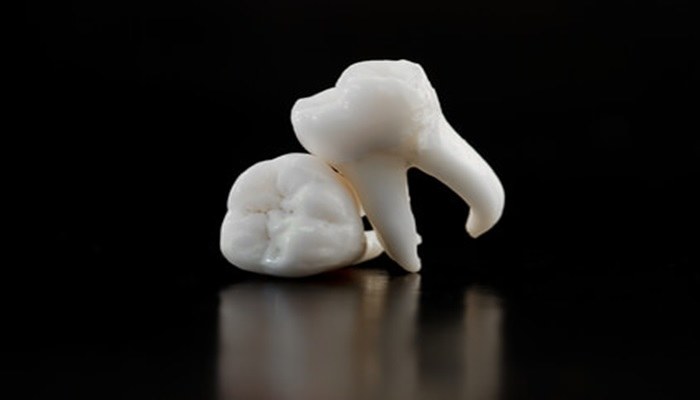Wisdom teeth, also known as third molars, are the last set of molars to emerge in the human mouth, typically appearing between the ages of 17 and 25. While many individuals have one to four wisdom teeth, a significant number of people are born without them, or they may never fully erupt. This phenomenon raises questions about the evolutionary and genetic factors that contribute to the absence of wisdom teeth in certain individuals. In this article, we will explore the reasons behind the presence and absence of wisdom teeth, the implications of these variations, and the evolutionary context that has led to this dental anomaly.
The Evolutionary Background of Wisdom Teeth
To understand why some people are born without wisdom teeth, we must first consider their evolutionary purpose. Wisdom teeth were once essential for our ancestors, who had diets consisting of tough, raw foods that required extensive chewing.
These molars provided additional grinding power, helping to break down fibrous materials and aiding in digestion. Over time, as human diets evolved to include softer foods and as dental hygiene improved, the necessity for wisdom teeth diminished.
The human jaw has also undergone significant changes throughout evolution. Early humans had larger jaws to accommodate more teeth, but as our diets changed and cooking techniques advanced, the size of the jaw gradually decreased. This reduction in jaw size has led to less space for wisdom teeth, making impaction and other dental issues more common. Today, many individuals find that their jaws simply do not have enough room to accommodate these extra molars, leading to their absence or the need for removal.
SEE ALSO: When Should I Syringe My Wisdom Teeth
Genetic Factors Influencing Wisdom Teeth Development
One of the primary reasons some people are born without wisdom teeth is genetic predisposition. Research indicates that the absence of wisdom teeth, known as third molar agenesis, is often hereditary. If one or both parents lack wisdom teeth, there is a higher likelihood that their children will also be born without them. Specific genes have been identified that influence the development of these molars, and variations in these genes can lead to the absence of one or more wisdom teeth.
Genetic studies suggest that about 5% to 37% of individuals may be born without one or more wisdom teeth. This range highlights the significant role genetics play in determining whether a person will have these molars. Furthermore, certain populations exhibit higher rates of wisdom tooth agenesis, suggesting that evolutionary pressures have shaped dental development differently across various ethnic groups.
The Role of Diet And Environment
In addition to genetics, diet and environmental factors also contribute to the presence or absence of wisdom teeth. Modern diets, which are often high in processed foods, have been linked to changes in jaw size.
A diet rich in soft, processed foods requires less chewing effort, which may lead to underdeveloped jaws that lack the space needed for wisdom teeth. In contrast, diets that include a variety of whole foods, such as fruits, vegetables, and tough meats, promote stronger jaw development and may increase the likelihood of having wisdom teeth.
Environmental factors, including chewing function and oral health practices, also play a role. Individuals who engage in more vigorous chewing, such as those who consume harder foods, may be more likely to develop fully formed jaws that can accommodate wisdom teeth.
Conversely, those with poor oral hygiene or limited access to dental care may experience dental issues that could influence the development of these molars.
The Implications of Missing Wisdom Teeth
The absence of wisdom teeth is generally not a cause for concern. Many individuals live perfectly healthy lives without these molars.
However, for those who do have wisdom teeth, complications can arise. Impacted wisdom teeth, which occur when there is insufficient space for them to emerge, can lead to pain, infection, and damage to adjacent teeth. As a result, many dentists recommend the removal of wisdom teeth as a preventive measure, even if they are not currently causing problems.
For individuals born without wisdom teeth, there are several advantages. They avoid the potential complications associated with these molars, such as impaction and the need for surgical extraction.
Additionally, they benefit from having a more manageable dental structure, as the mouth typically accommodates 28 teeth comfortably, without the additional four that wisdom teeth would contribute.
Conclusion
In summary, the reasons some people are born without wisdom teeth are multifaceted, involving a combination of genetic, dietary, and environmental factors. As human diets and lifestyles have evolved, so too has our dental anatomy. While wisdom teeth once served a crucial purpose for our ancestors, they are now often seen as vestigial structures that can lead to complications in modern dental health. Understanding the evolutionary background and genetic influences on wisdom teeth development can provide valuable insights for individuals navigating their oral health.

